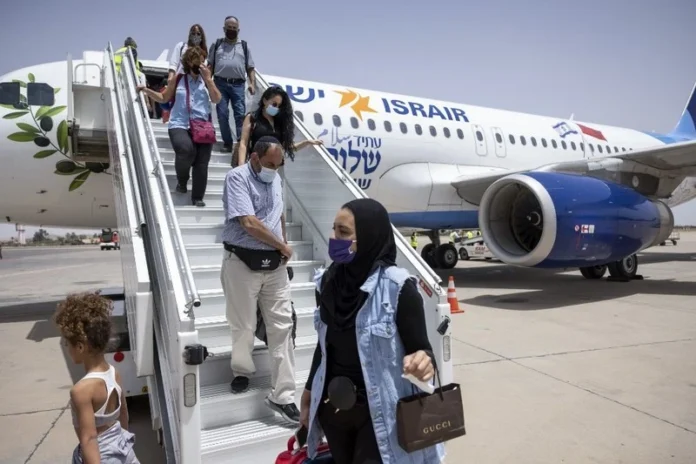In an unprecedented demographic and cultural shift, the reverse migration of Moroccan Jews from Israel to Morocco is raising pressing questions in political, cultural, and media circles.
What was once limited to isolated cases is now, according to an in-depth report by the Hebrew daily “Yediot Aharonot,” becoming a “soft collective return” of Moroccan Jews to their ancestral homeland.
From Rabat to Tel Aviv: Paths of Return
The protagonists of this new wave are not the original emigrants but the children and grandchildren of Moroccan Jews born in Israel.
Neta Hazan, one such returnee, told the newspaper she felt “immense joy” upon receiving her Moroccan ID card in Rabat, calling it “the fulfillment of a long-awaited personal dream.”
Hen Almalih, now living in Casablanca, described Morocco as a return “to the self.” Artists, academics, and entrepreneurs are settling in cities like Marrakech, Fes, and Rabat—either permanently or adopting a dual-residence lifestyle.
Multiple Reasons: From Nostalgia to Exclusion
The return is not merely driven by sentiment. Many cite social and cultural exclusion in Israel, particularly in development towns where North African Jews were initially settled. Second- and third-generation Israelis of Moroccan descent often feel they were never fully embraced by Israeli society.
Israel’s ongoing political and economic crises, as well as the war in Gaza and increasing regional tensions, have fueled this reverse migration. Morocco, in contrast, is viewed as a safe cultural refuge with a long tradition of coexistence and tolerance.
Cultural Nostalgia: Teaching Darija in Israel
Dr. Yona Elfassi, an anthropologist from Fes, is leading a project to teach Moroccan Darija in Tel Aviv. He believes this growing interest reflects “a deep desire to correct past wrongs.” Moroccan culture—its language, music, and cuisine—is enjoying a resurgence among Israeli youth.
Legal Challenges and Social Frictions
Despite the enthusiasm, legal processes to regain Moroccan citizenship have become stricter due to past abuses. Some returnees also report facing hostility from Moroccan locals due to their Israeli citizenship, amid widespread skepticism about normalization with Israel.
Israeli comedian Funny Berts, who lives in Marrakech, mentioned incidents of discrimination linked to his political stances—such as colleagues refusing to collaborate, or a Palestinian flag being placed on his car after a performance.
Identity and Politics: Critical Questions
Are we witnessing a historic reconciliation between Moroccan Jews and their homeland, or is this return still shaped by political sensitivities? Could Morocco become a new cultural anchor for Sephardic Jews disillusioned with life in Israel?
Conclusion: A Rediscovered or Reclaimed Homeland?
The return of Moroccan Jews from Israel to Morocco is more than a physical migration—it is a symbolic act. In an era of fragmented identities and shifting loyalties, these stories rewrite an ancient connection, blending memory with a search for future belonging.


